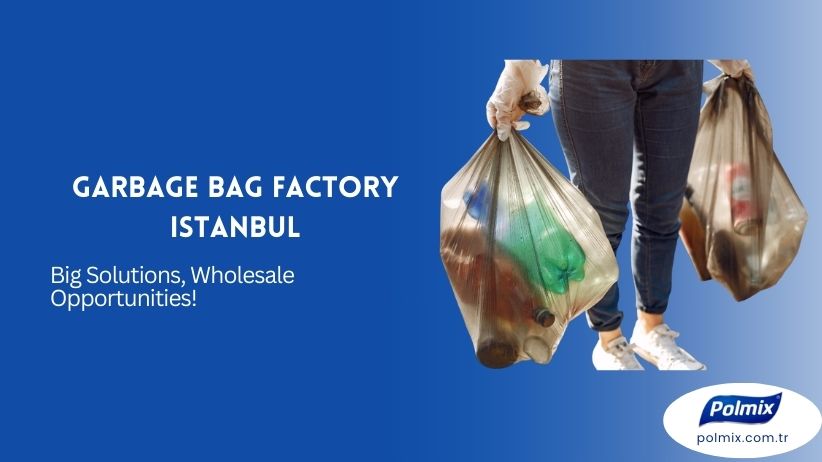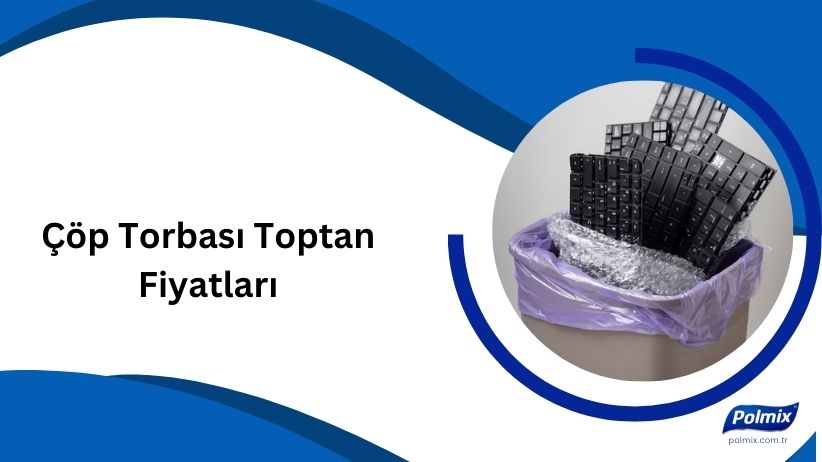Garbage Bag Factory Istanbul
Garbage Bag Factory Istanbul
In Istanbul's dynamic life, there are often unsung heroes. One of these is garbage bags. These simple yet indispensable products play a vital role in maintaining order in both our homes and workplaces. Established to meet the needs of urban life, Garbage Bag Factory Istanbul stands out with its quality products and environmentally friendly production processes. Today, would you like to discover this factory’s production processes, pricing, and environmental impacts? Let’s delve into this intriguing world together!
Key Points
- Garbage Bag Factory Istanbul offers high-quality products.
- The production process is carried out using environmentally friendly methods.
- Garbage bag production prices vary according to market conditions.
The Role and Importance of Garbage Bag Factories in Istanbul
Garbage bag factories in Istanbul play a crucial role in the sustainability of urban life. The city’s growing population and increasing waste volumes enhance their value. Particularly, garbage bag production prices hold a notable position in today’s market. The production process here is supported by environmentally friendly materials, enabling waste management without harming nature. Key highlights of these factories' importance include:
- Waste Management: Factories assist in the proper collection and storage of waste.
- Employment: They provide job opportunities for the local population and contribute economically.
- Environmental Awareness: Using sustainable materials, they minimize their impact on nature.
Thus, garbage bag factories in Istanbul are indispensable as they both protect the environment and significantly contribute to the economy!
Garbage Bag Production Processes: What Technologies Are Used in Istanbul?
In Istanbul, garbage bag production processes have become more efficient thanks to cutting-edge technologies. Manufacturers provide eco-friendly solutions by utilizing recyclable materials. In this process, bulk garbage bag manufacturers employ innovative methods to produce high-quality products. For instance, automated machines accelerate production. Despite being a profitable sector, prioritizing the preservation of natural resources is always a key focus. Therefore, adhering to the principle of sustainability is essential for the future. Istanbul, in this regard, can serve as a great example.
Sustainability and Recycling: Innovations in Garbage Bag Manufacturing in Istanbul
Istanbul is making significant strides toward sustainability. Innovations in garbage bag manufacturing create substantial differences both environmentally and economically. The use of recycled materials not only facilitates waste management but also preserves natural resources. During this process, raising public awareness and increasing recycling habits hold great importance. Remember, every step toward recycling is a step toward a more livable world. As these innovations are embraced, Istanbul’s future shines brighter.
Supply Chain Management for Garbage Bags in Istanbul
In a metropolis like Istanbul, the supply chain management of garbage bags is a critical matter. Effective management of this process is essential for the city’s cleanliness. Proper management ensures efficient use of resources and correct disposal of waste. As a result, many companies and institutions optimize their garbage bag supply processes. Key steps in this process include:
- Planning: Accurately determining supply needs.
- Collaboration: Developing partnership relations with suppliers.
- Innovation: Creating sustainable solutions through new materials and technologies.
These steps enhance the efficiency of garbage bag supply processes in Istanbul while also increasing environmental awareness. Thus, the significance behind what might seem like an ordinary product becomes evident once again.
Market Trends: The Future of Garbage Bag Factories in Istanbul
Garbage bag factories in Istanbul are taking significant steps to adapt to the evolving market dynamics of sustainability and environmental consciousness. These factories not only focus on production but also put considerable effort into developing recycling strategies. Increasing environmental awareness creates new opportunities for innovative solutions and reducing environmental impacts.
In the future, these factories will undoubtedly guide market trends and contribute to consumption. By utilizing more eco-friendly materials and leveraging local resources, Istanbul’s factories will lead this transformation. Public awareness will also be a key factor shaping future developments.

Environmental Impacts and Solutions of Garbage Bag Factories in Istanbul
Garbage bag factories in Istanbul significantly contribute to the city’s ongoing environmental issues. Problems such as air pollution, water contamination, and the degradation of local ecosystems are often associated with these factories' operations. However, we can overcome these issues! Enhancing recycling systems and revising waste management policies are critical for a sustainable future.
As a society, we must raise awareness and take steps to minimize environmental impacts. Additionally, innovative solutions should be developed through collaboration between public and private sectors. These measures are not only essential for the environment but also for our quality of life amidst a rapidly growing population.
Frequently Asked Questions
What types of bags are produced in the factory?
Various sizes and weights of garbage bags, pouch bags, and waste bags are produced in the factory.
What materials are used in garbage bag production?
Plastic, polyethylene, and biodegradable materials are typically used.
What is the factory’s daily production capacity?
Depending on the production line, the daily capacity ranges between 10,000 and 50,000 bags.
What are the environmental impacts of the garbage bag factory in Istanbul?
The factory adopts an eco-friendly production process by using recyclable materials and contributes to waste management.
Where can I find garbage bags?
Garbage bags are readily available in supermarkets, hardware stores, and shops selling environmental products.





